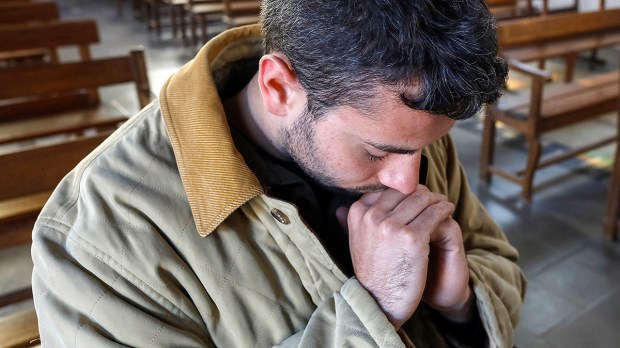Prayer can be a struggle for many people, as we are not always taught how to pray by our parents or our catechists. We may have been taught formula prayers when we were little, but our prayer life often stays at that level, not progressing as we get older.
One helpful exercise in prayer that has been taught over the past century is the acronym ACTS.
Here is a brief explanation of each of the letters and how to implement it in your prayer life.
A – Adoration
The first step of this type of prayer is adoration and it consists of opening ourselves to God and adoring God for who he is. We recognize how God is there, waiting for us and inviting us into a deeper relationship.
Adoration is the first attitude of man acknowledging that he is a creature before his Creator. It exalts the greatness of the Lord who made us and the almighty power of the Savior who sets us free from evil. Adoration is homage of the spirit to the “King of Glory,” respectful silence in the presence of the “ever greater” God.
CCC 2628
C – Contrition
After adoring God and his beauty, we turn into ourselves and recognize how we have fallen and do not always respond to God’s invitation of love. We ask the Holy Spirit to reveal our sins and strive to turn away from them, embracing God as our loving Father.
Among the penitent’s acts contrition occupies first place. Contrition is “sorrow of the soul and detestation for the sin committed, together with the resolution not to sin again.
CCC 1451
T – Thanksgiving
Our heart now turns to God in thanksgiving, recognizing how God has given us every good thing and is always with us. We can give thanks to God in all circumstances, even in what appears to be a bad situation for us.
[E]very event and need can become an offering of thanksgiving. The letters of St. Paul often begin and end with thanksgiving, and the Lord Jesus is always present in it: “Give thanks in all circumstances; for this is the will of God in Christ Jesus for you“; “Continue steadfastly in prayer, being watchful in it with thanksgiving.”
CCC 2638
S – Supplication
We end our prayer in supplication, which is also known as “petition.” This is the most common type of prayer, where we cry out to God and ask him to help us in our need.
The vocabulary of supplication in the New Testament is rich in shades of meaning: ask, beseech, plead, invoke, entreat, cry out, even “struggle in prayer.” Its most usual form, because the most spontaneous, is petition: by prayer of petition we express awareness of our relationship with God. We are creatures who are not our own beginning, not the masters of adversity, not our own last end.
CCC 2629


